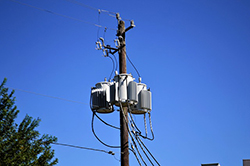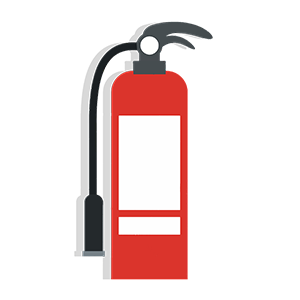Umbrella insurance protects insureds from financial devastation. It’s a common policy homeowners purchase because it protects their home and other assets when an insurance claim exceeds existing homeowners or auto insurance policy limits. However, it could be a smart investment for renters, too. 
It Supplements Existing Liability Protection
Typically, basic liability protection only includes $100,000 in coverage. An umbrella policy can offer $1 million or more in additional coverage. Both types of coverage offer financial protection and peace of mind.
It’s Inexpensive
For $1 million in liability protection, renters could pay as little as $300 a year. Claude Lilly, Clemson University College of Business and Behavioral Science dean, also reminds renters that an addition million may only cost $100 more. This inexpensive investment protects a renter’s possessions, auto and other assets as it gives the insured peace of mind.
It Complements Exposures
The hobbies a renter enjoys can make an umbrella policy a necessity. For instance, the renter’s dog bites a contractor or guest, resulting in thousands of dollars in medical expenses and an expensive lawsuit. The umbrella coverage kicks in after the basic renter’s insurance policy funds are exhausted, and it provides the financial protection the renter needs.
Likewise, owning a swimming pool, hunting as a hobby or playing golf can each be fun activities, but they also have the potential to turn into expensive lawsuits. Renters should invest in an umbrella policy that covers expenses associated with a claim or liability related to the exposures they enjoy.
Consider Net Worth
Each renter can decide how much umbrella insurance to purchase. Overall, the renter’s current assets and net worth determine the basic coverage amount.
Buy Based on Future Earnings
A renter who’s found liable for an auto accident could face wage garnishment. Purchasing an umbrella policy that takes future earnings into account ensures the renter is adequately covered and can pay the judgment without losing his or her home and other assets.
Remember Slander, Libel and Invasion of Privacy Protection
Umbrella coverage does more than protect financial assets after an accident or lawsuit. It also protects renters who are victims of slander, libel or privacy invasion. The protection an umbrella policy offers against these challenges makes it a wise investment.
Overall, umbrella insurance provides beneficial coverage for every consumer, including renters. An insurance agent can offer additional counsel and advice regarding how much umbrella insurance to purchase.
Read more
 You own your home, have your own business, and drive a new car. Though you are not rich, you are comfortable. It will be a shame to lose it all if someone sustains injuries by your car or at your home or place of business.
You own your home, have your own business, and drive a new car. Though you are not rich, you are comfortable. It will be a shame to lose it all if someone sustains injuries by your car or at your home or place of business.
You have insurance you say; you have standard auto liability insurance. The limits are $100,000 for a single person and a total of $300,000 for multiple people. Suppose you are responsible for any accident involving a shuttle taking ten people to the airport. Three hundred thousand dollars allows on average $10,000 per person. That is hardly enough to cover the emergency room fees let alone any surgery, rehabilitation, lost wages and other medical expenses. If there is a fatality, you may consider bankruptcy.
Your business has a small storefront on a busy street. A middle-aged executive comes into your place of business following a rainstorm. Your floor is wet and slippery, and the executive slips and falls. He strikes his head, loses consciousness, and goes into a coma. Your general business liability insurance has the same limit as your auto insurance – $100,000. It may cover part of the hospital bill, but the official says he is permanently disabled and sues you for future wages for $1 million. Since your business is a sole proprietorship, bankruptcy beckons.
Your son invites a friend over for a swim in your pool. He dives into the shallow end strikes his head and suffers traumatic brain injury. Sadly, the damage is permanent — with standard liability limits of $100,000 — well, you know, bankruptcy stares you in the face.
The inexpensive, elegant solution to the problem is umbrella insurance. When a claim exceeds your standard liability insurance limits, your umbrella insurance policy takes over and pays up to your umbrella liability limits. Most people who buy umbrella insurance extend their liability limits to $5 million.
Though you hope never to use it, for a few hundred dollars per year, you can protect your assets, and avoid financial disaster. Umbrella insurance pays when you are responsible for an injury that exceeds your standard liability limits.
Read more
 Whether you received valuable collectibles or heirloom jewelry, you’ll want to insure these holiday presents. Your homeowners or renters insurance policy may provide coverage for some of your new items, but anything above the existing coverage limit requires a personal articles floater. Consider specific gifts that you’ll want to insure this year.
Whether you received valuable collectibles or heirloom jewelry, you’ll want to insure these holiday presents. Your homeowners or renters insurance policy may provide coverage for some of your new items, but anything above the existing coverage limit requires a personal articles floater. Consider specific gifts that you’ll want to insure this year.
Jewelry: Your homeowners insurance policy should cover jewelry valued at less than $2,000. However, appraised jewelry that’s more valuable will require a floater.
Furs: From a real fur jacket to a fake fur-trimmed hat, add any furs you receive to your homeowners insurance policy.
Fine Art: Paintings, sculptures, rare books, manuscripts, ornamental collectibles, glasses and antique furniture fall under the fine art category. Record these items and their value on an itemized schedule attached to your insurance policy.
Electronics: Laptops, cameras, TVs and other electronic devices, plus telescopes, video recording equipment and films, are typically included in your existing homeowners or renters insurance policy. If these items are high-end, consider a floater.
Coins or Stamps: Depending on their value, you’ll want to add a floater for new coins or stamps in your collection.
Musical Instruments: List any musical instruments, including sound equipment, on a floater.
China, Crystal or Silverware: List these items on a schedule and include the insurance coverage amount.
Guns: List and describe each gun on a schedule. Include the value.
Sporting Goods: Bicycles, golf equipment, guns and other sporting goods fall under your existing insurance policy unless they’re collectible, rare or expensive.
Tools: Insured under your homeowners or renters policy, your new tools won’t need a floater unless they exceed the value of your existing coverage.
As with everything in your home inventory, record a detailed description, serial number, purchase date, value and picture of your new holiday presents. Store copies of this information with your insurance policy in a fireproof safe and in a secure location other than your home.
Go ahead and enjoy your new holiday presents. Just remember to check with your insurance agent to be sure they’re covered.
Read more
Nearly 13,900 PG&E customers in Santa Cruz County woke up today to a dark Monday morning, as the utility shut-off power to over 350k customers in 36 counties beginning Sunday night.This is a preventive/safety measure to reduce the chances of utility equipment sparking a wildfire as the State of CA is experiencing unprecedented strong winds and low humidity levels.
The next time you experience a power disruption, take these steps to protect your home, valuables and family.
Call the power company. Report the outage and any downed lines, and sign up (online) to receive alerts when the power returns.
Check the circuit breakers. Be sure they’re turned to the “on” position so the power will automatically turn on when it’s restored.
Never touch downed lines. They’re deadly.
Use battery-operated flashlights or lanterns. Candles or oil lamps can be fire hazards, so rely on battery-operated light sources.
Stay warm during winter power outages. Bundle in layers, gather your family and pets in one room and shut the doors. You can also use your wood stove as a heat source if it’s clean and functions properly.
Stay cool during summer outages. Dress in lightweight clothing and hang out in the basement. You’ll also want to stay hydrated. If the power outage lasts for an extended time, drive to a mall, movie theater or other cool location.
Preserve food. In general, food will stay safe in the refrigerator for up to four hours and in the freezer for up to 48 hours, but try to avoid opening these appliances. Wrapping these appliances with blankets might provide further insulation and food protection during short outages.
Fill your water jugs if possible. Grab your spare containers and fill them with water to sustain you during the outage.
Turn on the water. Let your spigots drip to prevent freezing water pipes during winter outages.
Unplug major appliances. Your appliances could be damaged by the surge that sometimes occurs when the power comes back on, so unplug all your appliances and electronics except your fridge or freezer. Consider keeping a single lamp or other electric device plugged in so you know when the power is restored.
Use your generator with caution. Only turn on your generator if it’s installed outdoors, properly connected to your home and fueled properly.
Don’t grill indoors. The carbon monoxide could kill you.
Check on your neighbors. Verify that your neighbors are safe, especially if they’re elderly or disabled, and share any water or food with them.
Stock an emergency supply. After the power returns, prepare for the next outage. Stock non-perishable food, water, flashlights, batteries, a first aid kit, and pet and baby supplies, if necessary.
Review your homeowners insurance coverage. Your policy may cover food losses, power surge damages, burst pipes, and even hotel expenses that you incur because of a power outage. Contact your insurance agent for more details.
A power outage can occur at any time, so be prepared. These steps help you protect your home and your family.
Read more
With over 3 million acres burned this year, California is reeling under the impact. This is around 10 times more acres than the state usually experiences.
While firefighters fight on, and our state’s resources are strapped – much of our wilderness and trails remain closed. As regular citizens we may feel helpless but we need to continue to do our part to prevent fires when we can.
October is National Fire Safety Month. Now is as good a time as any to evaluate your home and workplace so you can keep your loved ones and employees safe. Consider taking these steps that help you prevent fires this month and year-round.
Fuel Remediation
Make sure trees and surrounding areas follow the local guidelines. Clear out flammable brush and take down flammable trees. Thin the trees (using recommended proximity guidelines) .
Organize your Space
Poor housekeeping can mean an increase in clutter and fire fuel. Plus, messy hallways and blocked exits, sprinklers or firefighting equipment can hinder escape and rescue efforts. Walk through every part of your building and perform a thorough cleanup.
Maintain Equipment
Machinery, electronics and other equipment can overheat and cause a fire. Maintain all your equipment to prevent this hazard.
Prevent Electrical Hazards
Faulty wiring and other electrical hazards can spark a fire. Perform regular inspections of the entire electrical system and make any repairs immediately.
Store Chemicals Wisely
Flammable chemicals pose a safety risk. Read the Material Safety Data Sheets and labels on each container, then store and use the chemicals properly.
Allow Control Panel Access
You can turn off the electric and reduce this potential fire hazard at the control panel. Ensure the control panel is easily accessible and that key personnel know where it’s located and how to turn off the electric during an emergency.
Stock Fire Extinguishers
Based on your building’s size and occupancy, you must stock a certain number of fire extinguishers. Follow this requirement and inspect the fire extinguishers at least once a year to ensure they remain in proper working order. Also, train every staff member to use the fire extinguishers confidently.
Install Smoke Detectors and Sprinklers
Smoke detectors provide a warning, and a sprinkler system can save your building, equipment and inventory if a fire does start. Install both of these safety features, and inspect them regularly.
Designate Specific Smoking Areas
Require smoking employees and visitors to smoke only in certain areas that are far from chemicals, papers and other flammable materials. Provide ashtray receptacles and stock working fire extinguishers near the designated smoking areas, too.
Clearly Mark Exits
Post emergency exit diagrams where employees can see them. Also, mark every exit with a neon sign, and place reflective tape on the floor and doors.
Perform Regular Fire Drills
Fire drills prepare your employees for a successful evacuation. Conduct these drills regularly.
Update Contact Information
All of your employees should know who to contact during an emergency. The contact list will include the phone numbers for emergency personnel and key employees.
This October, you can celebrate National Fire Prevention Month. Take these 11 steps as you prepare your commercial property to remain safe.
Read more
There is a lot of ‘phishing’ going on these days. As many as one in five people fall prey to phishing incidents, but over 14 percent don’t recognize these phishing attacks. Learn more about phishing and how to combat attacks on your personal or company email.
What is Phishing?
Phishing is a scam that cybercriminals use to gain access to sensitive information. It often occurs via email. The cybercriminal will send you an email that looks official but actually includes spyware, malware or other malicious software. When you open the link or download the file from the email, the criminals can access confidential information like bank account information, your social security number and other data. In many cases, you never know that your information has been compromised.
How to Recognize a Phishing Email
Phishing emails are designed to look authoritative so that you will open them and give the cybercriminal access to your computer. While these emails often look like they’re from a real company, you can usually recognize them via five signs.
-
- Sender Address
Before opening any email, look at the sender’s address. It may look similar to the official company’s address but could be slightly off. For example, it may use dot-net instead of dot-com or include a small spelling error like micrsoft or micosoft.
- Threats
Cybercriminals use threats and fear to manipulate consumers. They may say that you will lose money, face criminal charges or suffer another devastating consequence if you don’t open the email. In most cases, these threats are meant to incite fear and get you to comply with their complicit wishes.
Steps That Can Protect Your Email
You can’t prevent cybercriminals from targeting you. However, you can take steps to protect yourself.
- Install spam filters and virus scans.
- Learn to recognize phishing emails.
- Only open email links from verified and trusted sources.
- Delete any emails that look suspicious.
- Train coworkers and associates to recognize phishing threats.
- Purchase cyber insurance that protects you if you are a victim of phishing.
You can’t stop cybercriminals from targeting your email, but you can use these tips to protect yourself and your data.
Read more


 Whether you received valuable collectibles or heirloom jewelry, you’ll want to insure these holiday presents. Your homeowners or renters insurance policy may provide coverage for some of your new items, but anything above the existing coverage limit requires a personal articles floater. Consider specific gifts that you’ll want to insure this year.
Whether you received valuable collectibles or heirloom jewelry, you’ll want to insure these holiday presents. Your homeowners or renters insurance policy may provide coverage for some of your new items, but anything above the existing coverage limit requires a personal articles floater. Consider specific gifts that you’ll want to insure this year.

